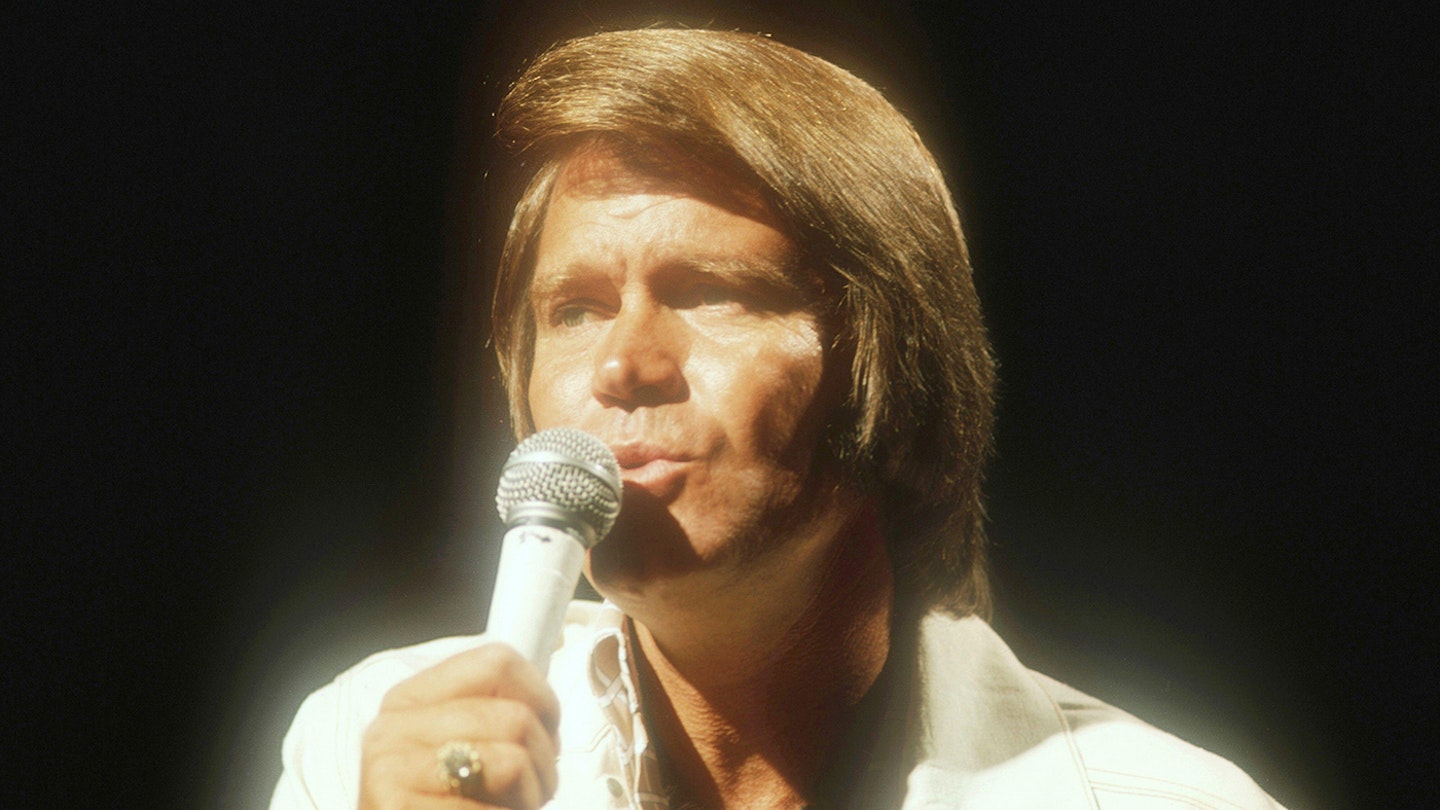5 September, 1975
By 1974 Larry Weiss had an enviable track record as a songwriter. He’d made his start in New York as a teenage composer-for-hire whose wares were picked up by Nat King Cole, Timi Yuro, Pat Boone and others. Later his name appeared in the credits to hits such as Jeff Beck’s Hi Ho Silver Lining, Eric Burdon’s Help Me Girl, Jerry Butler’s Mr Dream Merchant and Bend Me Shape Me, a UK Top 10 hit for Amen Corner. Each smash increased Weiss’s pulling-power.
“Having a big hit means lots of people looking through your catalogue for songs to record,” Weiss mused. “It brings a writer-performer like me a wider range of opportunities.”
The key word in this observation was “performer”. Also a capable singer, in 1974 he received his opportunity to sing his own songs. Russ Regan, the man who had named The Beach Boys, offered Weiss a recording contract with 20th Century Records, spawning the Black And Blue Suite album and a single he’d written called Rhinestone Cowboy, which referenced Weiss’s boyhood and cowboy heroes like Roy Rogers and Gene Autry. It made some impact on the US Easy Listening chart, but at first failed to attract cover versions, being turned down by Elvis Presley and David Allan Coe, the singer who once lived on Nashville’s streets in a hearse and was known as the Mysterious Rhinestone Cowboy. According to Weiss, Coe said: “Naw, I didn’t want to sing about myself.”
One who did listen was Glen Campbell. “I was driving in Hollywood and listening to an album-cut station when I heard the song,” he recalled. “It just blew me away.” Legend has it that Campbell was due to play a three-week tour of Australia, bought a cassette of the Black And Blue Suite and played it throughout his trip down under.
On his return to the States, Campbell was summoned to Capitol Records’ offices for a meeting with label vice-president Al Coury, who’d persuaded John Lennon to release the Number 1 single Whatever Gets You Through The Night.
Says Campbell: “I went into Al Coury’s office and he said I had to listen to a song and then cut it for him. The song turned out to be Rhinestone Cowboy.”
Coury even had a production team in mind, nominating Dennis Lambert and Brian Potter, who’d shaped hits for the likes of The Four Tops and Dusty Springfield before quitting to form their own successful Haven imprint.
Glen Campbell’s last US chart single of any portent had been Honey Come Back, a Top 10 entry back in 1970. By 1975, his run of hits had shrivelled to almost nothing while his acting career had failed to take off (one critic called him “the ideal cowboy to chase a wooden Indian”).
At Capitol, despite the in-house enthusiasm regarding Campbell’s take on Rhinestone Cowboy, the track sat in its can for two months before being promoted to lead track on Glen’s next album. Campbell, though, had never failed to believe in the record’s potency, and identified with the lyric, wryly pointing to such lines as, “There’s been a load of compromising on the road to my horizon.”
I’ve always been the Rhinestone Cowboy. I don’t care what Glen Campbell has to say.
David Allan Coe
The song had not been released as a single, but Campbell sang it while appearing on a TV telethon. Radio programmer Paul Drew saw it and contacted Capitol, who sent him a test acetate. Rhinestone Cowboy soon picked up national airplay on RKO’s chain of radio stations, forcing Capitol to rush release it as a 45. “It turned out to be my first hit to go to Number 1 across the board,” Campbell said later, recalling its cross-chart success and three Grammy nominations. Despite suffering from Alzheimer’s he would return in 2012 to reprise the song and claim the Grammys’ coveted Lifetime Achievement Award. Meanwhile, David Allan Coe, in his rodeo song Ride ’Em Cowboy, would sometimes protest: “I’ve always been the Rhinestone Cowboy – I don’t care what Glen Campbell has to say.”
As for Larry Weiss, who won Nashville’s Songwriter Of The Year award in 1977, his main regret is that the song never sparked the movie he’d anticipated. A Rhinestone Cowboy film, starring Sylvester Stallone and Dolly Parton, surfaced in 1984 but didn’t feature Weiss’s song. But he says a stage musical is still a probability.
